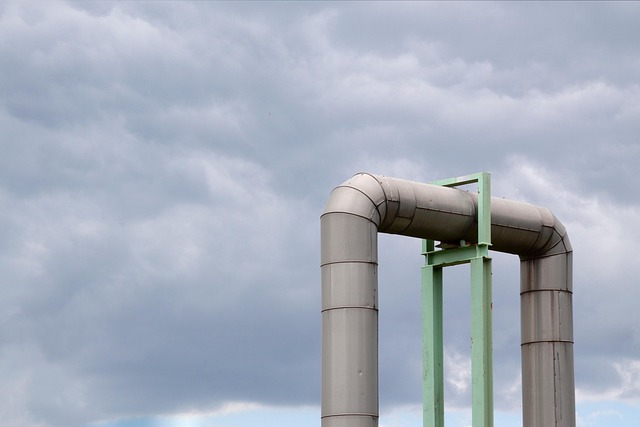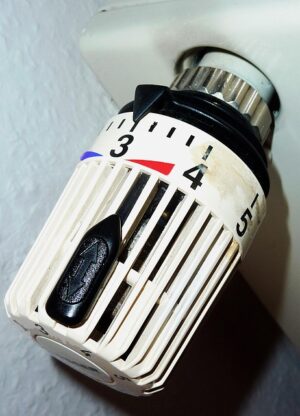Commercial unit heaters are compact yet powerful devices that maintain comfortable climates in business environments, ideal for spaces where large HVAC systems aren't practical. With various models offering precise temperature regulation via natural gas or electric heating, these heaters ensure optimal space heating and energy efficiency year-round. Their flexibility, integration with HVAC systems, and tailored solutions make them key to success in retail, offices, and warehouses, enhancing comfort while reducing costs. Selecting the right commercial unit heater involves considering space needs, installation types, energy efficiency, budget, and safety standards.
In the realm of commercial spaces, maintaining optimal climate control is paramount. Efficient commercial unit heaters play a pivotal role in ensuring comfortable and productive environments. This article delves into the significance of these heating solutions, exploring their essential role in managing indoor temperatures. We’ll uncover key features and technologies that drive efficiency, highlighting the numerous benefits of reliable climate control. Additionally, we’ll guide readers through selecting the perfect commercial unit heater, factoring in critical considerations for optimal performance.
- Understanding Commercial Unit Heaters: Their Role in Climate Control
- Key Features and Technologies for Efficient Heating
- Benefits of Reliable Climate Control in Commercial Spaces
- Selecting the Right Commercial Unit Heater: Factors to Consider
Understanding Commercial Unit Heaters: Their Role in Climate Control

Commercial unit heaters play a pivotal role in maintaining comfortable and controlled climates within various business environments. These compact yet powerful devices are designed to efficiently heat specific areas, making them ideal for commercial buildings, retail spaces, and offices where large HVAC systems might not be feasible or cost-effective.
Understanding the importance of precise temperature regulation, commercial unit heaters offer a range of options, including natural gas fired and electric heating models. The BTU capacity of these heaters directly impacts their heating capabilities, ensuring every square meter receives adequate space heating. By integrating them into existing HVAC systems, businesses can achieve optimal energy efficiency while maintaining a comfortable atmosphere, enhancing productivity and customer satisfaction in both winter and summer months.
Key Features and Technologies for Efficient Heating

In the realm of commercial space heating, commercial unit heaters are a game-changer. They offer precise climate control tailored to diverse environments, from office heating in modern skyscrapers to retail spaces requiring high foot traffic. Advanced technologies like suspended installation allow for unobtrusive integration, enhancing aesthetics and functionality.
Key features include powerful yet energy-efficient performance, with options like natural gas fired systems providing cost-effective solutions while reducing carbon footprint. Alternatively, electric heating units offer quick response times and precise temperature control. These heaters are designed with robust BTU capacity, ensuring optimal space heating regardless of the building size or layout. Moreover, seamless integration with HVAC systems allows for centralized control, further enhancing efficiency and comfort across commercial buildings.
Benefits of Reliable Climate Control in Commercial Spaces

Reliable climate control is a cornerstone for any successful commercial enterprise, playing a pivotal role in enhancing productivity and customer satisfaction across various spaces. From bustling retail stores to spacious offices and industrial warehouses, maintaining optimal temperatures and air quality significantly impacts how businesses operate. Commercial unit heaters, with their efficient design, offer a multitude of benefits tailored to these environments.
In commercial buildings, having robust HVAC systems, often augmented by energy-efficient heating solutions like natural gas fired or electric heating units, ensures consistent comfort. This is particularly crucial during peak seasons when demands for space heating soar. A well-regulated temperature not only creates a pleasant working or shopping environment but also contributes to cost savings by minimizing energy wastage. Moreover, suspended installation methods allow for flexible design options, catering to the unique needs of diverse commercial spaces, including retail spaces and offices.
Selecting the Right Commercial Unit Heater: Factors to Consider

Selecting the right commercial unit heater is a multifaceted process that involves understanding your space’s unique needs and characteristics. Commercial buildings, whether offices or retail spaces, demand efficient and reliable climate control solutions. Therefore, when choosing a unit heater, consider the size of the area you need to heat—larger spaces may require higher BTU capacity models for effective space heating. The type of installation is another factor; suspended installation offers flexibility in large open areas, while floor-mounted heaters are suitable for smaller or more contained spaces.
Energy efficiency should be at the forefront of your decision, especially considering the ongoing costs associated with HVAC systems. Electric heating and natural gas fired options offer different energy efficient benefits, so weigh up the pros and cons based on your location, infrastructure, and sustainability goals. Ensure the heater you select aligns with your budget while meeting or exceeding industry safety standards for a reliable and comfortable working environment in both office heating and retail spaces.
Commercial unit heaters play a pivotal role in maintaining optimal climate control within various business environments. By understanding their functionality, leveraging advanced features, and selecting the right model based on specific needs, businesses can ensure efficient heating and cooling, enhancing productivity and comfort for occupants. Reliable climate control is not just a luxury; it’s an essential factor contributing to the success of any commercial space.






